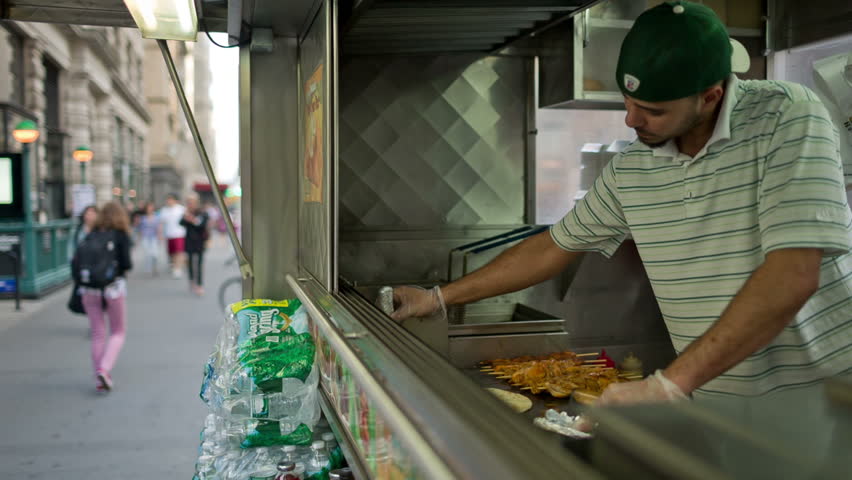|
The presence of food trucks in Montreal since 2013 is a positive step toward greater entrepreneurship at the municipal level, but the potential benefits to both consumers and workers are being undermined by heavy regulation, shows a Viewpoint published today by the MEI.These entrepreneurs must jump through numerous bureaucratic hoops in order to serve Montrealers, says Vincent Geloso, economist and co-author of the publication.
Also read, Newfoundland's bad news budget is doubly bad for restaurants. "A prospective vendor must acquire a permit of operation, which are limited by the number of food truck sites designated by the city. To do this a vendor must go through an approval process involving a lot of paperwork, and then pay $2,075 for an annual permit, on top of all of the other costs associated with regulatory compliance." Chicago has also adopted regulations to restrict mobile food vendors in order to avoid disturbing restaurant owners, he says. But this came at a high cost for the city. The burden of municipal regulation falls disproportionately on poorer individuals, many of whom are immigrants seeking to raise their living standards. For Montreal, opting for a single, reasonably priced flat-fee permit, basic health standards, and regular inspections instead of the tight restrictions that exist now would allow these benefits to materialize all while continuing to protect consumers. To avoid resistance to such beneficial reform, the city should consider including, as part of a broader plan, measures to alleviate the burdensome regulations and taxes it imposes on restaurants, too. According to one study of business regulations, based on opening a restaurant in different cities in Quebec, Montreal ranked 74th out of 100 in terms of ease of doing business. A large part of that poor performance is explained by a heavy regulatory and fiscal burden. "Mobile food vending offers great potential benefits as much for workers and entrepreneurs as for consumers. Sensible policy should avoid hindering the growth of this sector, while creating a favourable environment for healthy competition among food trucks and restaurants alike," concludes Jasmin Guénette, Vice President of the MEI and co-author of the publication. The Viewpoint entitled "Food-Truck Freedom for Montreal" was prepared by Vincent Geloso, Associate Researcher at the MEI, and Jasmin Guénette, Vice President of the MEI and co-author of the publication. This publication is available on our website. SOURCE Montreal Economic Institute
0 Comments
Leave a Reply. |
Advertisement
News & Updates
Stay informed with the latest news around foodservice, agriculture and other related food news. Advertisement Opportunities
|


 RSS Feed
RSS Feed


